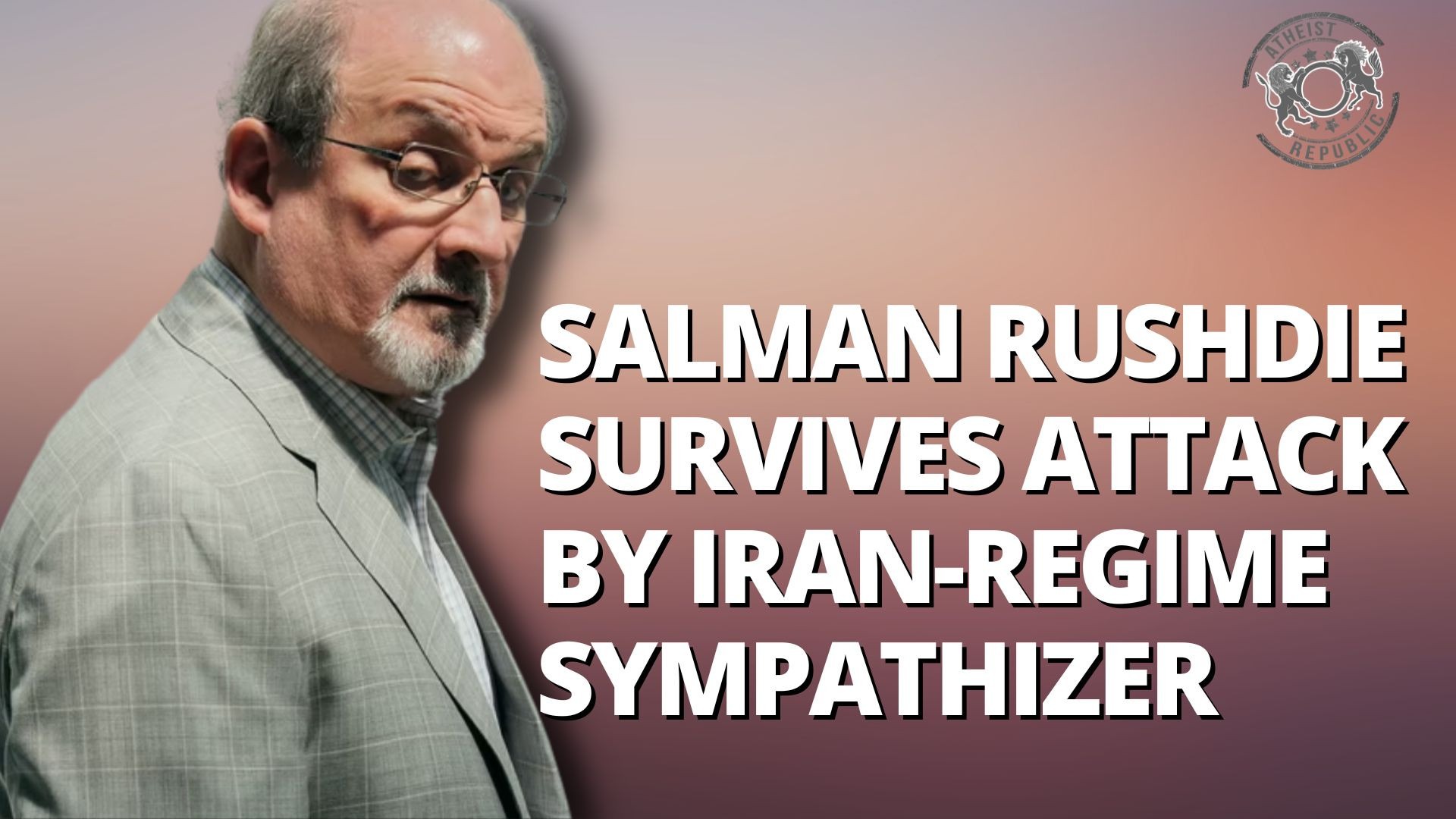
Salman Rushdie, the famed novelist, is recovering from injuries from a vicious stabbing attack on August 12, during a lecture in New York.
Last week, the author was taken off the ventilator and could speak. Andrew Wylie, his literary agent, said the author’s recovery would be long but is “headed in the right direction.” The author suffered a liver and severed nerves in his arms. Wylie added that he might lose an eye.
Zafar Rushdie, Rushdie’s son, confirmed the author’s progress in a tweet. “Though his life-changing injuries are severe, his usual feisty and defiant sense of humor remains intact,” he tweeted.
A family statement… @SalmanRushdie #SalmanRushdie pic.twitter.com/tMrAkoqliq
— Zafar Rushdie (@ZafRushdie) August 14, 2022
Rushdie was about to deliver a lecture at the Chautauqua Institution in Chautauqua, New York. Rushdie and other speakers were expected to discuss the United States as a haven for exiled writers and artists.
Right after Rushdie was called to the stage, the 24-year-old suspect, Hadi Matar, confronted Rushdie on stage.
At the scene during the attack, Joshua Goodman, Associated Press’s Latin America correspondent, said Matar stabbed or punched Rushdie more than ten times. Henry Reese, the event’s moderator, was also attacked and suffered a facial injury.
Goodman, who was traveling with his family in New York, said the incident “was very surreal.” “This was the last place you’d expect something like this,” he added.
Charles Savenor, a rabbi from the Park Avenue Synagogue, only seven minutes from Chautauqua, said they were all confused at first. “At first, you’re like, ‘What’s going on,” Savenor recounted the incident. “And then it became abundantly clear in a few seconds that he was being beaten,” he added.
Another attendee, Kathleen James, said they thought the attack was a stunt. “We thought perhaps it was part of a stunt to show that there’s still a lot of controversy around this author,” she said.
“But it became evident in a few seconds that it wasn’t,” she added.
Attendees questioned why there was no security, despite Rushdie having decades of death threats and a three-million-dollar bounty. Only a state trooper and a sheriff’s deputy were stationed during the lecture.
The state trooper was able to arrest Matar after members of the audience confronted and restrained him.
Despite being caught right after the attack, Matar pleaded not guilty during his arraignment on August 18. Mata was charged with one count of second-degree attempted murder and one count of second-degree assault.
In an interview with the New York Post, Matar said he admires Iran’s previous supreme leader, Khomeini, and accused Rushdi of insulting Islam. “I don’t like him very much,” Matar said, referring to Rushdie.
“He’s someone who attacked Islam; he attacked their beliefs, the belief systems,” he added.
Despite referring to Iran’s former supreme leader, Matar did not disclose any support from Iran. “I respect the Ayatollah; I think he’s a great person; that’s as far as I will say about that,” Matar said.
Iran also denied the allegations that it was involved in Rushdie’s attack.
Nasser Kanani, Iran’s foreign ministry spokesman, ardently denied Iran’s involvement and blamed Rushdie for the attack instead. According to Kanani, Rushdie opened himself to the attack after "crossing the red lines of 1.5 billion Muslims.”
Kanani also accused the West of having double standards regarding freedom of expression.
However, VICE News reported that European and Middle Eastern intelligence officials confirmed that Matar communicated directly with the members of Iran’s Islamic Revolutionary Corps (IRGC).
A NATO counterterrorism official described Rushdie’s stabbing as a “guided attack.” The official explained that this kind of attack involves intelligence elements talking an individual into action without being directly involved in the attack.
President Biden was shocked and saddened to hear of the attack. He praised the first responders and the audience members who helped subdue the attacker.
Statement by President Joe Biden on the Attack on Salman Rushdie pic.twitter.com/fCxsrqqvIB
— Jake Tapper (@jaketapper) August 13, 2022
Iranian-born journalist and activist Masih Alinejad, who has faced multiple threats by Iran, was disappointed in President Biden’s response. She didn’t think it was strong enough and called the response “slow and late.”
Attack on Salman Rushdie is an act of terror, President Biden must declare it.
From the first moment when we heard Salman Rushdie was stopped in New York, I knew for sure that the motive was the fatwa issued by Islamic Republic clerics. We must stand against Islamic terrorism. pic.twitter.com/ZsKpMUJS33— Masih Alinejad (@AlinejadMasih) August 16, 2022
The Iranian Parliament’s Malek Shariati denied direct involvement of the country but tweeted that the attack was a “warning to the murderers of Qassem Soleimani,”
“The attack on Salman Rushdie is a warning to murderers of Qassem Soleimani,” member of Iran’s Parliament Malek Shariati tweeted on Saturday.
— Iran International English (@IranIntl_En) August 13, 2022
